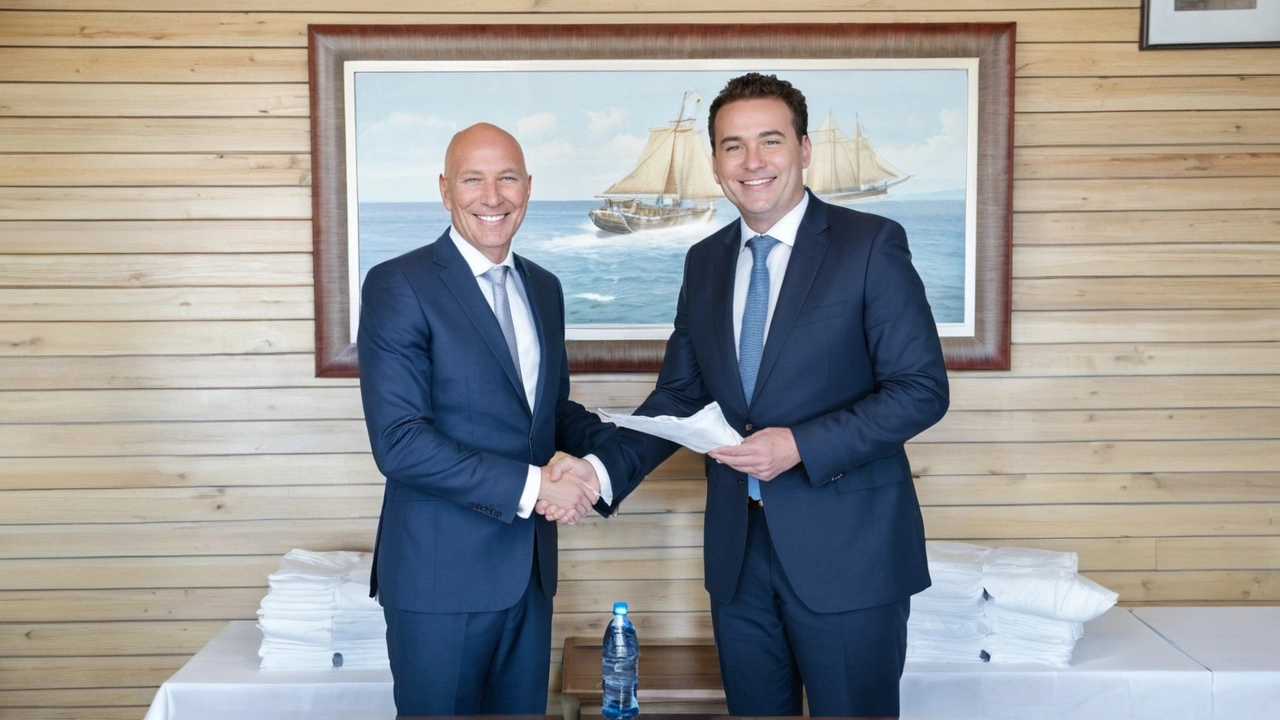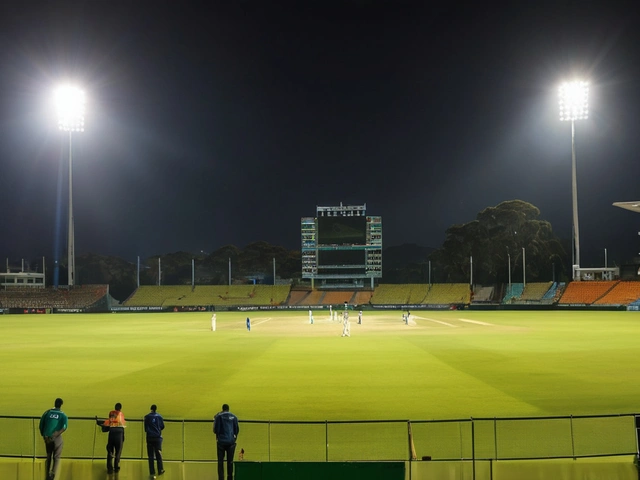- Home
- New German Ambassador Ralph Tarraf Takes Historic Step in Strengthening Libya-Germany Relations
New German Ambassador Ralph Tarraf Takes Historic Step in Strengthening Libya-Germany Relations

Ralph Tarraf Steps into His Role as German Ambassador to Libya
Ralph Tarraf, the new envoy from Germany, has officially presented his credentials to Libya’s Ministry of Foreign Affairs and International Cooperation. This moment marks the commencement of Tarraf’s crucial diplomatic mission in Libya, a nation that remains pivotal in North African geopolitics. His appointment follows the tenure of Michael Ohnmacht, who also aimed to bolster bilateral relations during his time as ambassador.
The presentation of credentials is a customary diplomatic ceremony that signifies the formal start of an ambassador’s duties in their host country. Tarraf's presentation, hence, symbolizes Germany's sustained commitment to nurturing diplomatic ties with Libya. His arrival is particularly significant given the myriad challenges Libya faces, from political instability to security concerns, which directly affect the broader region.
A New Chapter in Libya-Germany Relations
Germany and Libya share a history of engagement that spans decades, primarily centered around economic cooperation, development aid, and political dialogue. Tarraf’s mission, however, comes at a time when Libya is in a transitional phase, attempting to consolidate peace and progress following years of civil strife. The ambassador’s focus will undoubtedly be on reinforcing these efforts, fostering a stable environment conducive to sustainable development.
Libya’s Ministry of Foreign Affairs has expressed optimism regarding Tarraf’s appointment. Officials believe his extensive experience in diplomacy will be instrumental in addressing the complexities of Libyan-German relations. Tarraf's tenure is expected to witness initiatives that deepen economic collaborations, enhance cultural exchanges, and support Libyan institutions through technical assistance and capacity-building projects.
Germany has consistently played a role in international efforts aimed at stabilizing Libya. The Berlin Process, initiated in 2020, is a notable example of Germany’s commitment to a peaceful resolution in Libya. Tarraf’s role could extend to fortifying these initiatives, working closely with Libyan authorities and international partners to ensure the implementation of peace agreements and support for national reconciliation efforts.
Challenges Ahead for the New Ambassador
Given the current geopolitical landscape, Tarraf’s journey as ambassador will be laced with challenges. Libya's political scene remains fragmented with ongoing disagreements among various factions. This political uncertainty poses significant hurdles for any foreign diplomat aiming to facilitate change or progress. However, Germany’s steadfast approach and continued dialogue with all Libyan stakeholders might help navigate these challenges effectively.
Another pressing issue is the security situation in Libya. The country has grappled with armed conflicts and the presence of various militia groups. Ensuring the safety and security of diplomatic missions and their endeavors is crucial. Germany, in cooperation with the Libyan government and other international bodies, will need to strategize on ways to mitigate security risks while promoting stability and peace.
Economic and Developmental Partnerships
The economic reconstruction of Libya is an area where German expertise and support can be immensely beneficial. Tarraf’s tenure is likely to focus on enhancing economic ties, fostering trade relations, and spearheading developmental projects. Germany’s experience in infrastructural development, renewable energy, and vocational training can be pivotal in rebuilding Libya's economy and providing much-needed job opportunities for its youth.
Moreover, collaboration in education and healthcare sectors can also be expected. Germany has a robust system of technical and vocational education training (TVET) which could be instrumental in equipping the Libyan workforce with skills necessary for various industries. Similarly, partnerships in healthcare could improve medical services and health infrastructure in Libya, addressing a significant need in the post-conflict scenario.
Cultural and Social Exchanges
Beyond politics and economics, Tarraf’s mission would benefit from an emphasis on cultural and social exchanges. Strengthening people-to-people connections through educational exchanges, cultural programs, and tourism can create a more nuanced understanding between the two nations. Such initiatives play a critical role in soft diplomacy, fostering mutual respect and long-lasting friendship.
In conclusion, Ralph Tarraf’s role as the new German ambassador to Libya is not merely ceremonial. It represents a continued commitment towards a stable and prosperous Libya. His extensive experience in diplomacy will be crucial in navigating the complexities of Libyan-German relations, aiming for concrete progress in bilateral cooperation. As he embarks on this significant journey, the international community and local stakeholders will be keenly watching, hopeful for positive outcomes that benefit both nations.


Write a comment